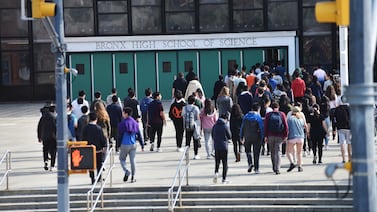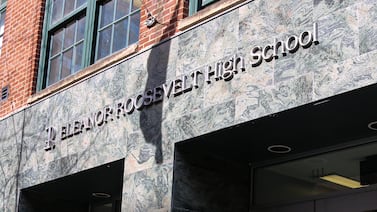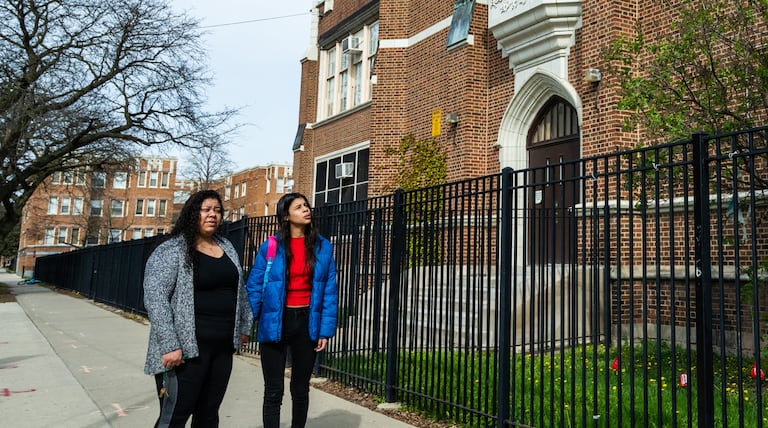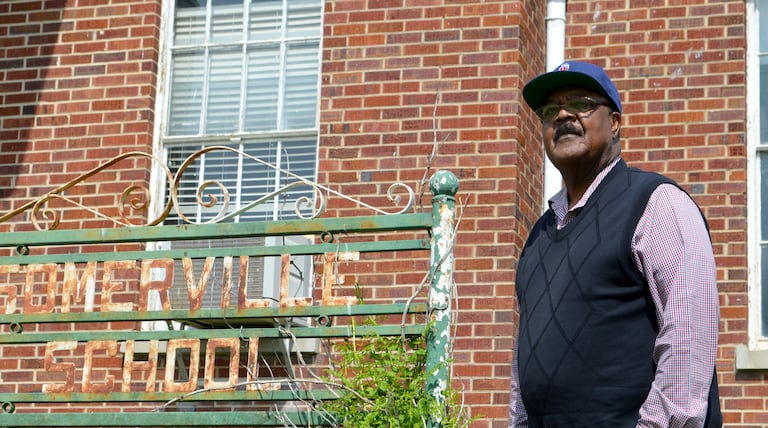School segregation / integration
An appellate court judge granted a motion to take up the school segregation case, which could bring a resolution sooner than if the case remained in trial court.
As the case continues through the courts, the New Jersey Policy Institute wants a judge to consider an expansion to the state’s existing interdistrict school choice program as a remedy to the issues raised.
Plaintiffs say the trial court’s denial to hold New Jersey liable for the de facto segregation that exists in its public school system should be reversed by the appellate court.
The report recommends several solutions, including that school districts revise their school attendance zones at least every four years.
The state and plaintiffs failed to reach an agreement that would have outlined remedies to New Jersey’s entrenched school segregation.
Denver’s school boundaries have not been systematically reviewed in decades.
After more than a year of meetings to discuss remedies to New Jersey’s segregated school system, parties in the significant legal case said they’re reaching a conclusion, though it’s unclear whether that would entail further legal proceedings or an agreement on solutions.
The latest bill generates many of the same concerns that helped sink his 2024 proposal.
The Panel for Educational Policy will again postpone its vote on an upcoming contract for the Specialized High School Admissions Test as it seeks to solicit public feedback.
'We know Tennessee. We know our children,' said Gov. Bill Lee
Schools in Macon, Georgia, are still largely segregated. Zo’e Johnson’s family is torn over whether they can afford for her to stay at her mostly white private school — and whether the cost makes sense.
Federal courts are limited in how they can address school segregation. Brown’s Promise, which advocates for school integration, is urging states to try strategies like consolidating school districts and pooling tax dollars.
Critics say Lee’s education platform promotes segregation and inequality.
The policy shift comes after some Manhattan parents lobbied Chancellor David Banks to impose geographic admissions preferences at high-demand local high schools.
Just 4.5% of offers at specialized high schols went to Black students and 7.6% to Latino students, a slight uptick from last year. About two-thirds of the city’s students are Black or Latino.
Thousands of migrant families are moving into majority Black neighborhoods, where schools are struggling to serve kids who are learning English as a new language.
The list of schools that would offer the admissions bump hasn’t been finalized. But the campuses under consideration include Millennium, Beacon, Bard Early College and Eleanor Roosevelt High Schools.
Casi dos años después de que empezaran a llegar autobuses repletos de migrantes a Chicago, muchos niños han llegado a escuelas con poco apoyo lingüístico de CPS.
Since 1965, Fayette County schools have been operating under a desegregation order. Some worry that without court oversight, the system will resegregate.
Daniel Kiel, whose documentary chronicled the ‘Memphis 13,’ sees vouchers and ‘colorblind’ policies eroding progress on desegregation.















